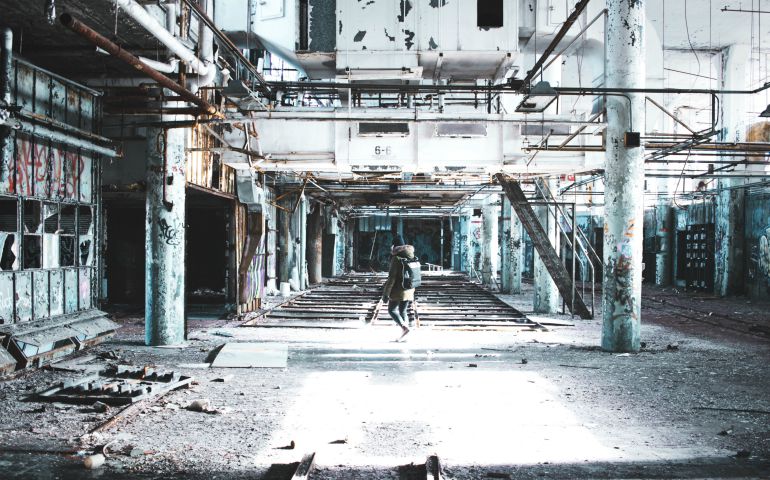
Unsplash/Patrick Tomas
Christophe Bonneuil's and Jean-Baptiste Fressoz's, The Shock of the Anthropocene is a great book and one I wish never had to be written.
I feel that way about many books that have the word "shock" in the title. I don't care for shock. I like to wake up in the morning and plan a day and find some of my plans realized by the end of the evening. I am aware that surprise, even shock, sometimes comes. But for the most part I prefer the predictable to the unpredicted. That is anthropocenic of me.
Call me well-rutted or habituated to my habits or even ritualized, disciplined, coherent. My planning gene has a well-worn flexibility. I can change on a dime, especially if and as I plan to change on a dime. Again, my anthropcenity is showing. If I know a certain parishioner is likely to be late or a no-show, I am ready with new ideas to fill and fulfill the time. I even plan on using my cancellations. All that is to say that the French authors' The Shock of the Anthropocene makes me scared.
My friend Michael Ferber, an English professor at the University of New Hampshire, puts it this way:
The word "Anthropocene" has gained a lot of traction lately, even in literature departments, where I hang out, for both good and bad reasons. It is a Big Idea, probably valid in itself, and very scary; it demands our absolute attention. But it is also a new plaything in cultural studies among those who feel they must be "au currant," and it has been pressed into quite a few "grand narratives," all of which serve ideological purposes or mislead us to one degree or another. Or distract us from what we must do.
The term, Ferber explains, was introduced around 2000 at conferences and "refers not to just another historical period but to a geologic or stratigraphic break. …"
Am I really living normal days in this abnormal a time? What kind of freedom is that? And is there not something wrong — in the true sense of wrong — to be living as normal during an abnormality of this size? Am I not sort of violating the main feature of the human, that thing called consciousness?
The Anthropocene epoch has to do with the enormous impacts humans have had on the rest of the Earth — and how they may no longer be reversible. Humans now define the epoch and may not even be able, at our own serious peril, to refine the Earth. The fix may already be in, while I am shuffling the emails on my computer, glad for a cancellation from another human.
One of the larger points the authors make is that it was not really humans that did the damage but rather some humans in some parts of the world who did the deed. They (we) gained the power to live at the top of the food and energy chains and took it. Watch out for another big word, "Oliganthropocene." And another, the "Capitalocene." Some people in a certain economic system did most of the damage by using up most of the power for themselves.
The authors of The Shock of the Anthropocene are quite critical of people who say we just didn't know what was happening until now. They argue forcibly that scientists have been sounding the alarms for 200 or 300 years. For example, the authors reference William Stanley Jevons, the great 19th-century economist who understood the unsustainability of coal use, and said we (the British) must choose between "brief greatness and longer continued mediocrity." He recommended brief greatness.
The authors both create new big words and critique old big words. They don't believe in sustainable development because they don't think we can develop our way out of the mess. They also think that the word "crisis" is wrongly used because it implies that there will be an end to this crisis. Using the word "crisis" offers a "deceptive optimism."
I wonder if human consciousness and human flexibility can confront the extensive reasons for pessimism in these moments. If we do, and if we can, I wonder if the powerful can find a way, still, to save themselves or ourselves? If not, we will have to depend on the powerless. Wouldn't that be interesting?
We may be stuck with the Anthropocene. It might also evolve a different kind of human, one who knows how to think about the Earth first and its multiple inhabitants second. What if we learned to think about all of us instead of some of us? Would that make for a different kind of Anthropocenic epoch? Nothing less seems right. Everything else feels wrong.
[Donna Schaper is senior minister of Judson Memorial Church in New York City.]
Editor's note: Want more stories from Eco Catholic? We can send you an email alert once a week with the latest. Just go to this page and follow directions: Email alert sign-up.


